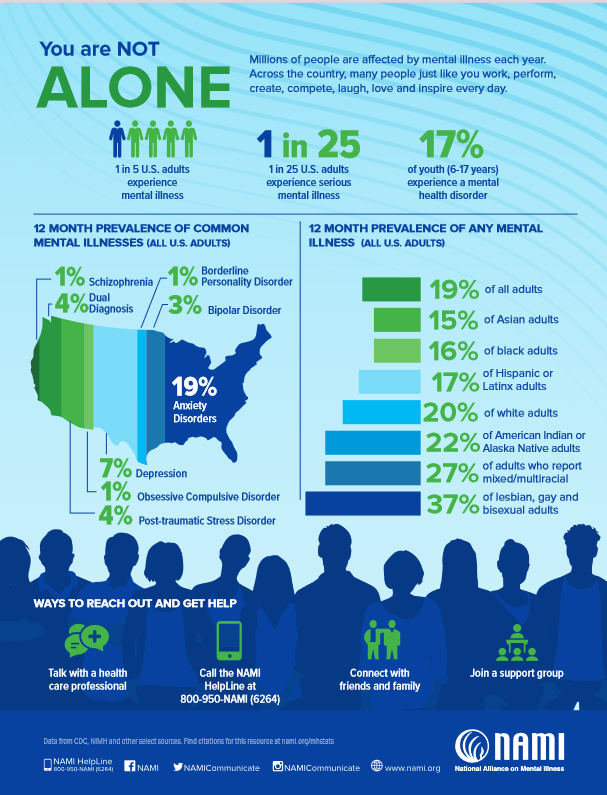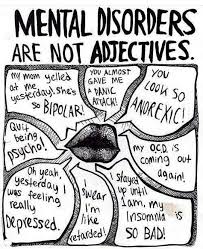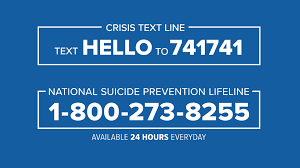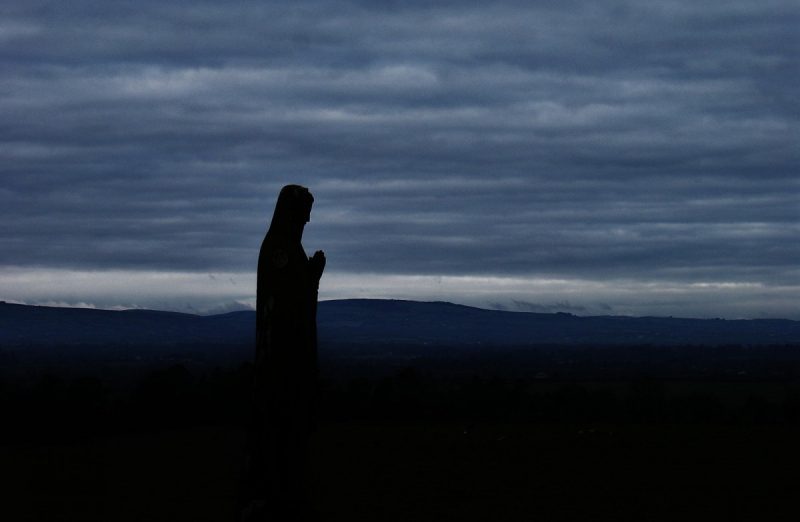by Katherine Humelsine
Let’s start with some numbers. According to the CDC, 1 in 5 Americans will experience mental illness in any year. 1 in 25 Americans live with a serious mental illness or disorder. More than half of Americans will experience mental illness or disease at some point in their lives.

All this is before you even factor in our currently pandemic reality.
Chances are, you know someone who is currently living with a mental illness or mental disorder. You probably know many people whose lives have been affected by mental illness, whether it be their own experience, or the experiences of family members or friends. The list of mental illnesses and disorders is long but some of the more commonly recognized include depression, anxiety, substance abuse disorders, eating disorders, ADHD, PTSD, OCD, bioplar disorder, just to name a few. There is no one cause of mental illness and any number of factors come into play including genetics, environmental factors, brain chemistry, injury, substance abuse, social factors, and the experience of trauma and other life stressors. The onset of mental illness can occur at any age and can only be temporary or can last a life time. Some mental illnesses can be experienced with no or only minimal impact on a persons life while others may have long term, negative impacts on the ability of a person to function. Treatments are often a mix of medication, lifestyle changes and monitoring, as well as some sort of therapy. All this is the say that mental illness is complex, it is common, it varies in severity and impact, and each person in unique in their symptoms, experience, and treatment and monitoring needs.
Mental health is just as important as physical health and yet, we tend to be far more open and accepting of health issues of the body then we are with health issues of the mind.
While mental illness is always important, the need for resources, support, and education has only become more apparent during this past year. Let’s face it, it has been a really difficult year for most people! Since March, most of us have been stuck in our homes, unable to visit with friends or to see family. Our homes have become our everything, a place of safety from from the corona virus, where we work, where we go to school, and where we are stuck with the same people all day, every day. Many are dealing with economic uncertainty, food insecurity, balancing the need to work with the needs to keep themselves and those around them safe and healthy. We continue to experience loss, the birthdays we did not get to celebrate with friends, the thanksgiving traditions that had to be put off this year, the graduations that we cancelled, and, for an increasing number of families, the loss of a loved one who we were unable to say goodbye to or mourn with loved ones over. And don’t even get me started on the election! Frankly, 2020 has been a challenging year for all of us and the challenges just keep coming at us and many of us have found ourselves without the resources we have relied on before to maintain and manage our mental health and mental illnesses and the resources available are fewer and harder to find.
There have been a plethora of stories published this past year about the concerning reports of increased reports of anxiety, depression, substance abuse and even suicide. Young adults and minorities of all ages report increased mental health symptoms,there has been increased concern for healthcare workers and for the families who have lost loved ones, and with winter approaching there is the related concerns of seasonal affected disorder in a time when more people and currently experiencing depression and people being forced back indoors for the winter thus leading to another increase in experiences of loneliness and depression. There have been many reports about the increase of alcohol sales all while access to support groups and resources such as AA has been made harder by the pandemic. And, tragically, there has been a rise in the rate of suicides.
With all this in mind, my question is what should our response as Christians be to all of this? What is the role of the church in helping those experiencing mental illness?
I admit that these are big questions that cannot be answered easily, quickly, or in the space of a single blog post. However, this does not let us off the hook and we must start somewhere to begin the work of caring for those with mental illnesses in our churches, especially in a time where the need to so much greater then usual. Mental illness can be an uncomfortable topic but, I believe that it often is the uncomfortable things in life that are the most important and the most urgent.
So, where can we start? What can we do here and now?
First, it must be made abundantly clear that mental illness is real and that it should only be treated by a trained professional. Would you let anyone but a trained medical professional fix your broken arm, administer your chemo, or take out your appendix? Of course not, so why would we have any less of a standard for the treatment of mental disorders?
As Christians, we believe in the power if prayer. So, let’s pray not only for those who are physically ill or injured but, let’s also lift up in prayer those who are experiencing mental illness. Life up those who are experiencing depression, all those who are living with substance abuse and those who are fighting every day to remain sober, remember the veteran who has been experiencing symptoms of PTSD, or the child who is struggling due to their ADHD. These are just a few suggestions but, the power of prayer is real and the knowledge that someone is praying for you is just as powerful and healing in its own special way.
Care for the individuals experiencing mental illness and their families just as intentionally as you care for those who are injured, sick, or otherwise in crisis. God has called us to care for and to visit the sick and while visitation is not a viable option at the moment, there are many other ways to connect and to show love and support.

Consider your language and the language used in worship, prayer, and liturgy. Be thoughtful in what say. Trust me when I say that no one, however well meaning, should ever cite 1 Peter 5:7 (Cast all your anxiety on him, because he cares for you) to a person who is living with anxiety. Just trust me on this one. Also, remember that mental illnesses are not adjectives! Saying things like “I am going to pull my hair out over this” or “Don’t be so OCD” can be harmful, even when said in jest.I know that this is uncomfortable for many people so, here is a helpful list of things not to say and some suggestions for helpful responses. There are also resources tailored to faith communities which you might find helpful. Do not be afraid of talking about mental illness, we should be talking about! We will always make mistakes, in talking about mental illness and elsewhere but, if we are open to asking questions and to listening, we can become better community members, friends, and supporters.
These are just a few ways in which you and your church can immediately begin the work of becoming more understanding and inclusive to those experiencing mental illness. The church has done a great deal of damage to those who live with mental illness and this is something that must be seriously addressed however, we can start here and start now by recognizing the needs of our communities in this strange time.
If you, or someone you know, are struggling there is help.






1 Comment
Add Yours →Katherine, this is so chock full of data, pastoral encouragement and practical help. Thank you! One of the interesting juxtapositions in your piece is that you have paragraph urging religious leaders to appreciate the reality of mental illness and that it should be “treated by a trained professional,” followed immediately by a paragraph that begins with Christians’ belief in the “power of prayer.” This is not a criticism, but gratitude for how this juxtaposition raises an important theological question for Christians: what is the role of prayer in relationship to challenges like mental illness and mental disorder? What do our prayers communicate to God? To our community? To members of our community experiencing mental illness?